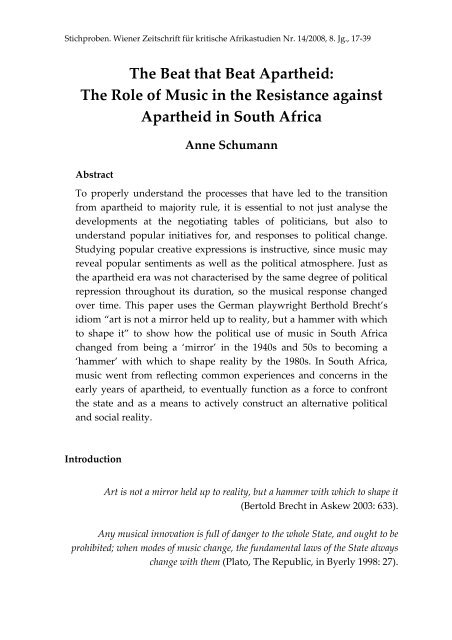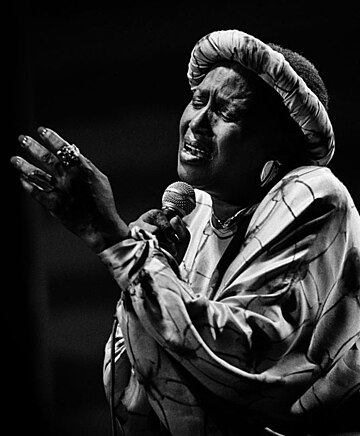Reference




OpenAI's Answer
The song "Meadowlands," composed by Strike Vilakazi in 1956, played a significant role in the cultural resistance against apartheid in South Africa. The ambiguity of its lyrics was a crucial element that allowed it to subvert the oppressive regime while evading censorship.
How Ambiguity Served as Resistance:
-
Double Meaning: The lyrics of "Meadowlands" seemed to comply with the government's actions on the surface. White authorities believed it was supportive of the forced relocations of black South Africans to the Meadowlands township. In reality, the song was a protest against these displacements. This double meaning helped the song pass government scrutiny without being banned while delivering a clear message of resistance to those who understood the subtext.
-
Unity and Mobilization: The song's hidden message provided a unifying tool for the black South African community. The ambiguity allowed people to sing it openly, fostering a sense of shared dissent and resistance among those who knew its true meaning.
-
Psychological Defiance: Even as the government misinterpreted the song's intention, its widespread popularity and the collective understanding among black South Africans acted as a psychological victory. It was a way of resisting oppression without direct confrontation, which could have led to immediate repercussions.
Examples from Sources:
- According to a source (Albert Combrink), the white government thought the song supported their actions, but in reality, it was a protest against forced removals.
- Another source from Quizlet discusses how the song's lyrics mix different languages, which could be seen as another layer of its ambiguous and inclusive resistance.
Conclusion:
In "Meadowlands," the strategic use of ambiguous lyrics served as an effective method of resistance against apartheid. It enabled the song to spread widely, uniting the people in a shared, covert opposition to the oppressive relocations, while simultaneously evading direct suppression from the apartheid regime.
Follow Up
Related
Why do some sentences seem ambiguous and have multiple interpretations?
How can linguistic ambiguity lead to different interpretations in communication?
How does context affect the interpretation of ambiguous phrases in English?
How did the ambiguous command arrangements affect relations between Australian and American commande